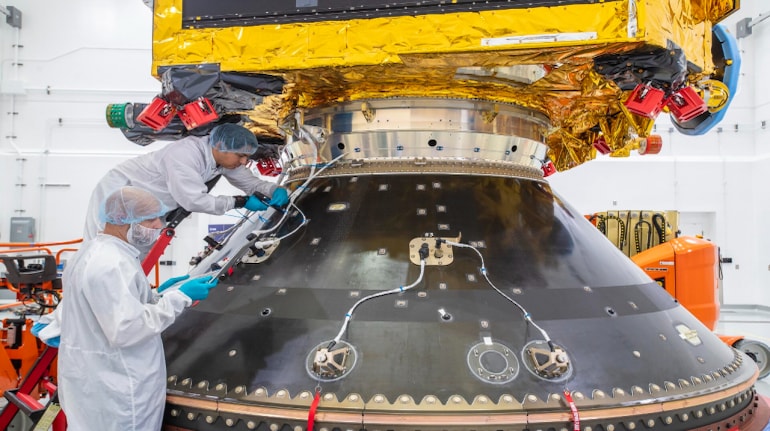



Euclid, the cosmological mission of the European Space Agency (ESA), is all set for launch on July 1. The spacecraft will lift off from the Astrotech facility located near Cape Canaveral in Florida, USA, aboard a SpaceX Falcon 9 rocket, to start its 1.5-million-km journey to space from where it will unlock the mysteries of the dark Universe.
Basis for Euclid Mission
According to the ESA, 95 percent of the Universe appears to be made up of unknown 'dark' matter and 'dark' energy, the cosmos's invisible components. The mysterious 'dark' components are thought to be the cause of the Universe's accelerating expansion, but their nature and origin are unknown.
Scientists are yet to discover either of these unknown 'dark' components. Euclid is on a mission to discover how they have affected galaxies, galaxy clusters, and the expansion of the Universe itself.
Euclid Mission to uncover mysteries of the 'dark' Universe
ESA’s Euclid mission is designed to explore the composition and evolution of the 'dark' Universe, and uncover the great cosmic mystery of dark matter and dark energy from the Sun-Earth Lagrange point L2.
In orbit, space telescope Euclid will create a great map of the large-scale structure of the Universe across space and time by observing billions of galaxies out to 10 billion light years, across more than one third of the sky.
Euclid will explore how the universe has expanded and how large-scale structure is distributed across space and time, revealing more about the role of gravity and the nature of dark energy and dark matter.
What the Mission hopes to achieve
From this wealth of new data, astronomers will be able to infer the properties of dark energy and dark matter more precisely than ever before. This will help theorists pin down the nature of these mysterious components and develop a refined understanding of how gravity behaves at the largest distances.
Track Euclid launch Live
The Euclid space telescope is scheduled to launch on a SpaceX Falcon 9 rocket from Cape Canaveral in Florida, USA, on July 1, 2023, at 11:11 a.m. local time / 16:11 BST / 17:11 CEST. A back-up launch date on July 2 is also planned.
The launch of the Euclid Mission will be aired live on ESA Web TV and on the ESA Youtube livestream. Live coverage will also be available on NASA Television, the NASA app, and the NASA website.
Euclid, a European mission
Euclid is a European mission, built and operated by ESA, with support from NASA's Roman Space Telescope by May 2027. By May 2027, scientists expect to examine the mysterious dark energy phenomenon, and unravel the secrets of dark energy in ways never previously feasible.
NASA is assisting the Euclid mission by providing essential hardware for one of the spacecraft's sensors, supporting the science team, and creating a Euclid data processing centre in the United States.
Discover the latest Business News, Sensex, and Nifty updates. Obtain Personal Finance insights, tax queries, and expert opinions on Moneycontrol or download the Moneycontrol App to stay updated!
Find the best of Al News in one place, specially curated for you every weekend.
Stay on top of the latest tech trends and biggest startup news.